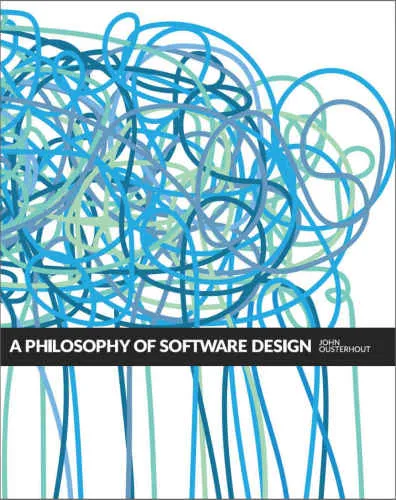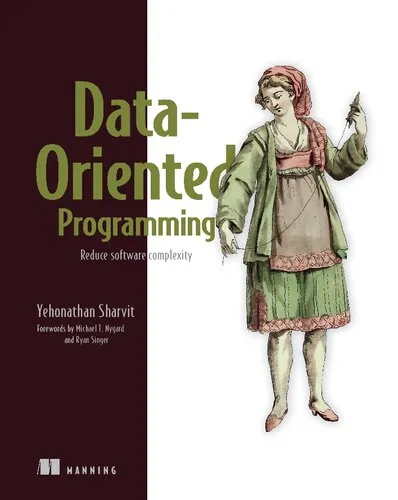A Philosophy of Software Design
4.0
Reviews from our users

You Can Ask your questions from this book's AI after Login
Each download or ask from book AI costs 2 points. To earn more free points, please visit the Points Guide Page and complete some valuable actions.Related Refrences:
Introduction
Welcome to a comprehensive exploration of A Philosophy of Software Design, a seminal work by John Ousterhout that dives deeply into the intricacies of designing software that is both robust and flexible. This book serves as a beacon for software developers, engineers, and educators, presenting profound insights and pragmatic guidance on improving software architecture for the long term.
Detailed Summary of the Book
A Philosophy of Software Design delves into the complexities and challenges faced by software developers in crafting maintainable and scalable software systems. The book is structured to present a compelling argument for simplicity as the cornerstone of solid software design, advocating for reducing complexity to the greatest extent possible.
The author introduces various concepts and strategies, drawing from years of personal experience and broad academic influence. Throughout the book, Ousterhout stresses the importance of modularity and abstraction, arguing that identifying and defining clean interfaces between independent units of code can significantly reduce complexity and enhance clarity.
Each chapter offers unique perspectives on how to tackle common design issues, from interface design to error handling and system decomposition. By articulating a philosophy that goes beyond mere coding techniques, the book encourages developers to cultivate a mindset that prioritizes thoughtful design decisions that impact the software's lifecycle.
Key Takeaways
- Simplicity Over Complexity: Emphasizes the necessity of minimizing complexity to improve code readability and maintainability.
- Modular Design: Advocates the use of modular structures as a strategy to manage complexity through abstraction and encapsulation.
- Trade-offs: Highlights the importance of understanding and balancing trade-offs in design decisions to achieve the best overall outcome.
- Continual Refactoring: Encourages regular code refactoring to adapt to ongoing changes and integrate improvements seamlessly.
- Documentation as a Tool: Stresses the value of well-written documentation to complement design, ensuring longevity and usability of software systems.
Famous Quotes from the Book
"The key to managing complexity effectively is simplicity."
"Progress is made by making things more complicated for the programmer trying to do a trivial task, in order to make it simpler for everyone else."
Why This Book Matters
A Philosophy of Software Design matters because it transcends the tactical realm of everyday programming and ventures into the strategic domain of software architecture. It challenges the reader to approach development with a mindset oriented towards long-term sustainability, rather than immediate quick fixes. As software systems continue to grow in complexity and impact critical areas of technology, the book’s insights become increasingly relevant.
This book is an essential read for anyone involved in software development, from students to seasoned professionals, because it not only addresses common pitfalls in software design but also proposes philosophical approaches to overcome them. Ousterhout's work deserves attention for its ability to distill vast experience into practical principles that can transform how developers and organizations think about the software they create and maintain.
Free Direct Download
You Can Download this book after Login
Accessing books through legal platforms and public libraries not only supports the rights of authors and publishers but also contributes to the sustainability of reading culture. Before downloading, please take a moment to consider these options.
Find this book on other platforms:
WorldCat helps you find books in libraries worldwide.
See ratings, reviews, and discussions on Goodreads.
Find and buy rare or used books on AbeBooks.
1785
بازدید4.0
امتیاز0
نظر98%
رضایتReviews:
4.0
Based on 0 users review
Questions & Answers
Ask questions about this book or help others by answering
No questions yet. Be the first to ask!











